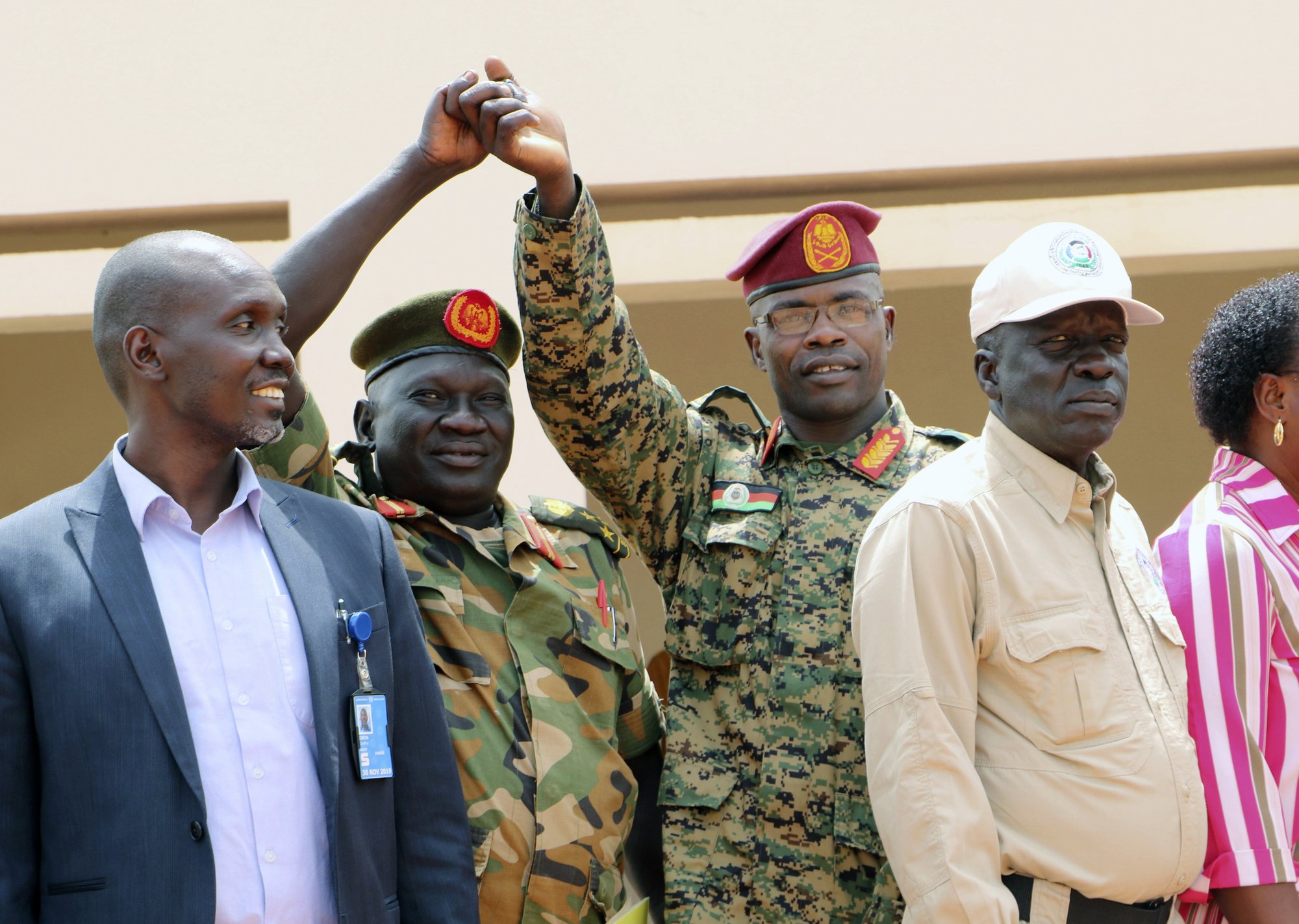
Recruitment of new soldiers threatens South Sudan’s peace

South Sudan’s rival armed groups are forcefully recruiting civilians, including child soldiers, violating a fragile peace deal signed five months ago.
The evidence from numerous accounts that opposing sides are adding fighters to their ranks is a worrying sign that threatens the country’s peace, say officials.
In Yambio, near the border with Congo, all sides met recently to try to resolve their differences and strengthen the peace agreement. However, the meeting quickly turned tense as the government and opposition accused each other of recruiting new fighters, including child soldiers. The meeting highlighted the need for all fighters to be integrated into a single, unified national army, said observers.
The reports of new recruitment come from all sides.
In Twic state 1,200 men were forced into the government army, according to a letter sent from community leaders to the governor in January and seen by The Associated Press.
In Upper Nile state opposition-leader Riek Machar is recruiting troops to “balance his number of forces with the government,” said a high-ranking opposition member who spoke with Machar and who insisted on anonymity for his safety.
And in Western Equatoria state, another group, the National Salvation Front, is allegedly recruiting former combatants pushing them to take up arms again or hand over their weapons if they refuse, said Johnson Niwamanya, team leader for the Ceasefire and Transitional Security Arrangements Monitoring Mechanism, the body charged with documenting violations and overseeing the implementation of the peace agreement.
South Sudan is slowly emerging from the five-year civil war that killed almost 400,000 people and displaced millions. A peace deal signed on September 12 in neighboring Sudan has been marked by delays, missed deadlines and violations.
The latest wave of recruitment shows the fragility of the peace, as all sides are boosting the size of their forces, said an expert.
“In South Sudan, manpower is political power. Politicians use peace deals to grow their own armed ranks,” said Alan Boswell senior analyst with the International Crisis Group.
Officially, the government and both opposition parties deny that any recruitment is taking place. “We are not expecting war for us to recruit,” said the government’s deputy army spokesman Santo Domic Chol.
In addition are accusations of the continued use of child soldiers. An estimated 19,000 children are associated with armed groups in South Sudan, according to the U.N., giving the country one of the highest numbers of child soldiers in the world.
James Nando, an opposition commander in Western Equatoria who is accused of having child soldiers, told AP that he is merely caring for “orphans.”
While the parties say they are committed to peace, fighting continues across South Sudan, especially in the hard-hit Equatoria region.
Last week the United Nations refugee agency said 13,000 people had fled renewed violence in parts of the country after clashes erupted at the end of January between South Sudan’s army and the rebel group, the National Salvation Front.
Speaking to the parties in Yambio, chairman of the ceasefire-monitoring group Desta Abiche urged both sides to speed implementation of the peace deal. By May, opposition leader Machar is supposed to return to the country to once again serve as First Vice President and all armed groups are expected to be separately housed, then trained and unified into one national army. So far there are no barracks where the forces are meant to be housed.
“We need to kick everything up because of time,” said Abiche to both sides.
“There are three months left to take full responsibility. Peace is possible because it’s you who can make peace,” but he warned: “It is also you who can cause the peace to fail.”






